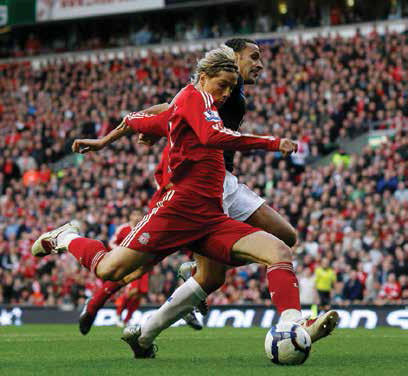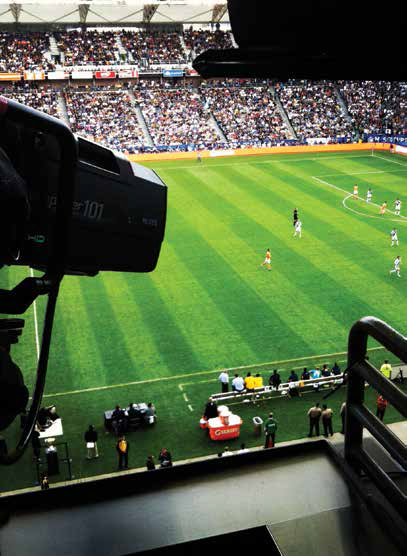In big-time sports it’s more than the games in danger of being corrupted, writes Khalid Ali, secretary general of the European Sports Security Association
The positive anti-corruption role that licensed betting operators play was starkly highlighted recently by the decision to ban superstar snooker player Stephen Lee for 12 years for bettingrelated match-fixing, effectively ending his professional career. The European Sports Security Association has welcomed that decision and the professionalism of the World Professional Billiards and Snooker Association, which has decided to place much of the evidence leading to its verdict in the public domain.
From an examination of that evidence it is difficult to conclude that this case would have ever come to light, let alone resulted in such a judgment, if it wasn’t for the sophisticated security protocols of licensed betting operators. The provision of detailed information regarding types of bets, sizes of wagers, identities of account holders and the detection of suspicious betting patterns proved crucial.
This has also been the case in numerous other instances, although there is often no public recognition of it, and the critical role played by betting operators has therefore remained relatively unheralded. Internal sporting procedures are partly to blame in some instances. In others, the concern is that this is a consequence of poor sports governance involving inadequate rules and sanctions, resulting in it being far too easy for match-fixers to infiltrate sporting circles.
What is clear is that many sports could benefit by adopting the approach taken by snooker. The WPBSA has sent a clear and robust message to its participants and those criminal elements who would seek to corrupt its events and defraud betting operators and their consumers. The International Olympic Committee is taking similarly progressive action and is working closely with ESSA to further enhance our already positive cross-sector alliance against the fixers.
In other areas, however, it may well be that it benefits the commercial ambitions of some sports for our sector’s important contribution and fiscal investment in anti-corruption measures to remain firmly in the background. The recent lobbying of football, for example, demonstrates just how increasingly intertwined the commercial betting issue is with the integrity one for them. It is a position which is placing ever more obstacles in the way of ensuring that the most effective measures are in place to protect the integrity of the game.
Earlier this year, in a policy paper titled “European Football United for the Integrity of the Game” and focusing on the ongoing battle against corruption, several of the sport’s major governing bodies framed a “sport’s organiser’s right in the context of betting,” stating that “recognition” of this right would “help tackle threats relating to the integrity of sport, secure a fair financial return to sports bodies and their members, provide funding to further protect the integrity of the game, but also finance other areas such as youth, amateur and female sport to develop the economic and social role of sport.” The document was endorsed by the Union of European Football Associations, the European Professional Football Leagues, the European Club Association and FIFPro Division Europe, the European branch of the World Players’ Union.
With the exception of many lotteries, whose main purpose is benefiting society, what exactly private betting operators have to do with many of these areas or why the sector should fund them is unclear. From an integrity perspective, what these football bodies imply is that operators should pay the game to protect it from its own corrupt participants, who often collude with criminals to defraud our industry.
That is not a logical argument but unfortunately one which many blindly swallow. It also invariably includes advocating restrictions on the types of bets available, even to the extent that sports should supposedly have the right to determine the commercial markets offered by regulated betting companies. This is promoted as a way of protecting the integrity of events, but it is actually about establishing commercial control.
The UK Gambling Commission, which regulates some of the largest licensed betting operators, conducted a detailed study on this issue and determined that it was “not persuaded that there is a sufficient case for restricting types of bets” and recently reiterated its position with regard to proposals to restrict in-play betting, stating that it had “looked carefully at this” but that “any threat to sports betting integrity can be managed without the need to ban” these very popular wagers.

ESSA fully supports this evidence-based analysis and approach. There is simply no evidence to support limits on regulated betting markets, which would be an unjustified restriction on trade, based on unsubstantiated integrity grounds. The result would be to push consumers toward unregulated markets not burdened by such restrictions and where no integrity monitoring takes place. That is clearly not in the interests of consumers or of sports.
ESSA has also continually opposed the establishment of the flawed “sport’s organiser’s right” as pursued by many international sporting bodies. Apart from the cost of their own internal security systems, betting operators already make large-scale investments in sport and pay significant sums to regulators to protect betting integrity. Again, those operators should not also have to pay for the corrupt activities of players, coaches and officials.
Asian operators should not be drawn into thinking that this is solely a European issue. UEFA, EPFL and other global authorities will want associated contributions from operators around the world, as they do with other commercial activities such as TV rights and and where Asia is becoming an ever bigger part of the fiscal picture. The English Premier League recently criticized the Japanese government for extending the country’s betting market to its games without holding discussions with the league which no doubt would include promotion of a commercial “right”.
Indeed, the flawed commercial and integrity arguments employed by European football are commonplace worldwide. ESSA continually encounters these whilst representing the licensed betting industry’s interests at high-profile transnational working groups. It is surprising just how little knowledge of our industry and how it works is displayed by many of the politicians and policy officials involved in these discussions.
There has also been a clear move towards painting the Asian market as the sole culprit in the corruption of sport around the globe. Asian gangs have clearly been operating in this environment, notably in the unregulated sector, but the reality is somewhat more complicated. Modern-day criminal networks, like the betting markets they exploit, operate on a transnational scale.
ESSA has been active in delivering this message and providing evidence-based arguments to counter proposals for market restrictions and to influence, for example, the Council of Europe’s ongoing development of what it intends will be a global matchfixing convention.
The United Nations also has entered the debate, and earlier this year, representatives from 128 countries committed their governments to developing appropriate policies and structures to address the threat of corruption at the national, regional and international levels.

With such activity comes increasing political pressure from governments around the world to act, and invariably that will mean advocating the kind of flawed market restrictions outlined above. This is as much a danger to the regulated Asian sector as to the European and should not be underestimated. It is more important than ever that the licensed betting industry stands together in the face of an increasing tide of flawed integrity rhetoric designed to advance commercially based arguments.
The European Sports Security Association is a Brussels-based nonprofit that works with commercial betting operators in employing cutting-edge technologies to combat match-fixing and corruption in sport through the detection, disruption and reporting of suspicious betting patterns. Members include: bet365, bwin.party, interwetten, Ladbrokes, Paddy Power, Sportingbet, Stan James and William Hill. Khalid Ali is secretary general of ESSA, responsible for the administration and day-to-day running of the association and for providing strategic counsel to its members. Since joining the group in 2008, Mr Khalid has helped grow the association and has been involved in a number of high-level policy forums, including the Council of Europe’s Convention on Match-Fixing and the European Commission’s expert group on good governance. For more information, visit www.eu-ssa.org.




























